The crash of "Princess Alice": a disaster on the Thames that claimed 650 lives
Categories: Catastrophes | Europe
By Pictolic https://pictolic.com/article/the-crash-of-princess-alice-a-disaster-on-the-thames-that-claimed-650-lives.htmlMajor maritime disasters that claimed hundreds of human lives are well known to everyone. They write books and make films about them. Much less is known about shipwrecks on the rivers, although some of them were no less deadly. On September 3, 1878, the passenger steamer Princess Alice sank on the Thames. This disaster claimed the lives of 650 people and became the largest in the history of the British river fleet.
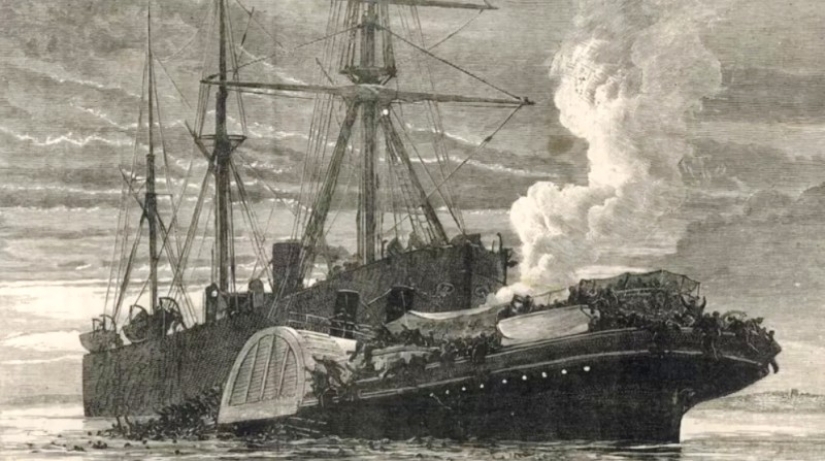
The steamer "Princess Alice" in the warm season made one-day pleasure trips from London to the sea coast and back. On that tragic day, the weather was fine and early in the morning the ship with 700 passengers on board set off on its usual route. Most of the vacationers were families with children from the middle strata of society. The ticket cost only 2 shillings, that is, about 800 modern Russian rubles.
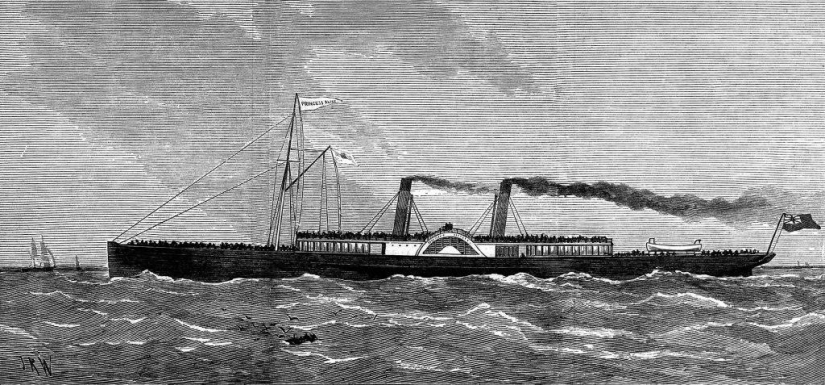
Passengers arrived at the end point of the journey, in Kent. Local attractions awaited tourists there: the caves of Rocherville Park, the waterfront of the city of Sheerness and views of the seaside resort of Gravesend. In the evening, when the "Princess Alice" set off on her return journey, many felt tired and went down to their cabins or settled down in the saloon of the ship.
Details of the disaster that occurred on the evening of September 3, 1878, became known thanks to the ship's cook Alfred Merriman. It was a 30-year-old man, father of 4 children. He was looking for a job for a long time and got on the "Princess Alice" before that fateful flight. Working in the kitchen of the steamer promised good earnings, which was like air needed by a father of many children. Merriman was lucky twice - he became one of the few who managed to survive.
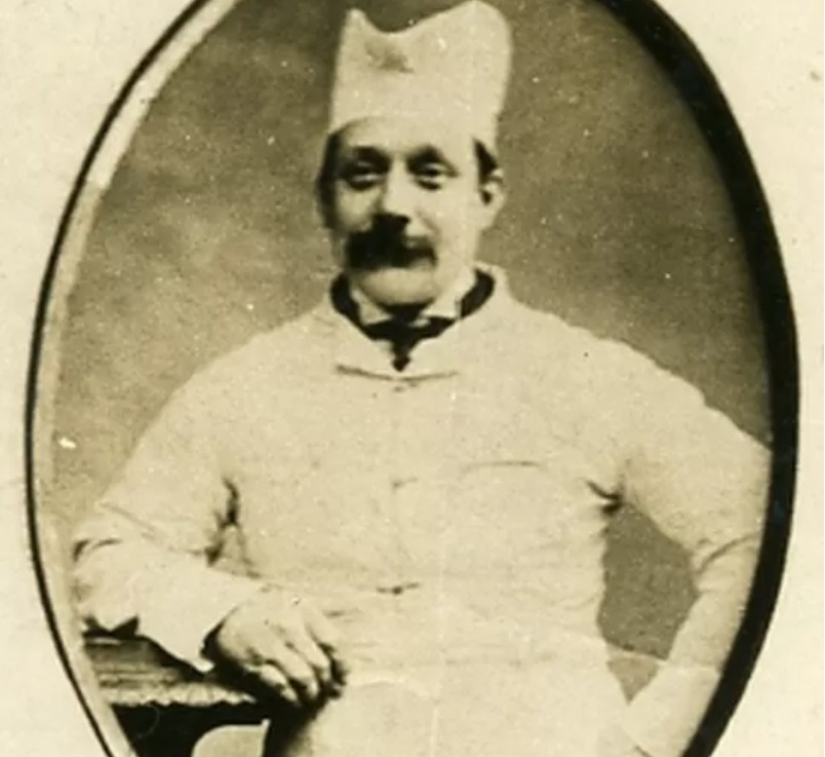
The tragedy occurred at 8 pm, when the ship was approaching the North Woolwich pier, in east London. Alfred Merriman finished his work and stood at the door of the salon, admiring the evening views of the capital. Later, he recalled that someone from the team approached him and asked how his first day on the job was. “Excellent,” Alfred replied, and at that moment the ship was shaken by a monstrous blow.
The 890-ton coal carrier "Castle Bywell" crashed into the starboard side of the "Princess Alice" at full speed. The cargo ship was three times as heavy as the steamer and literally cut it in half. Panic arose on board - women and children screamed terribly and tried to climb up to the captain's bridge.
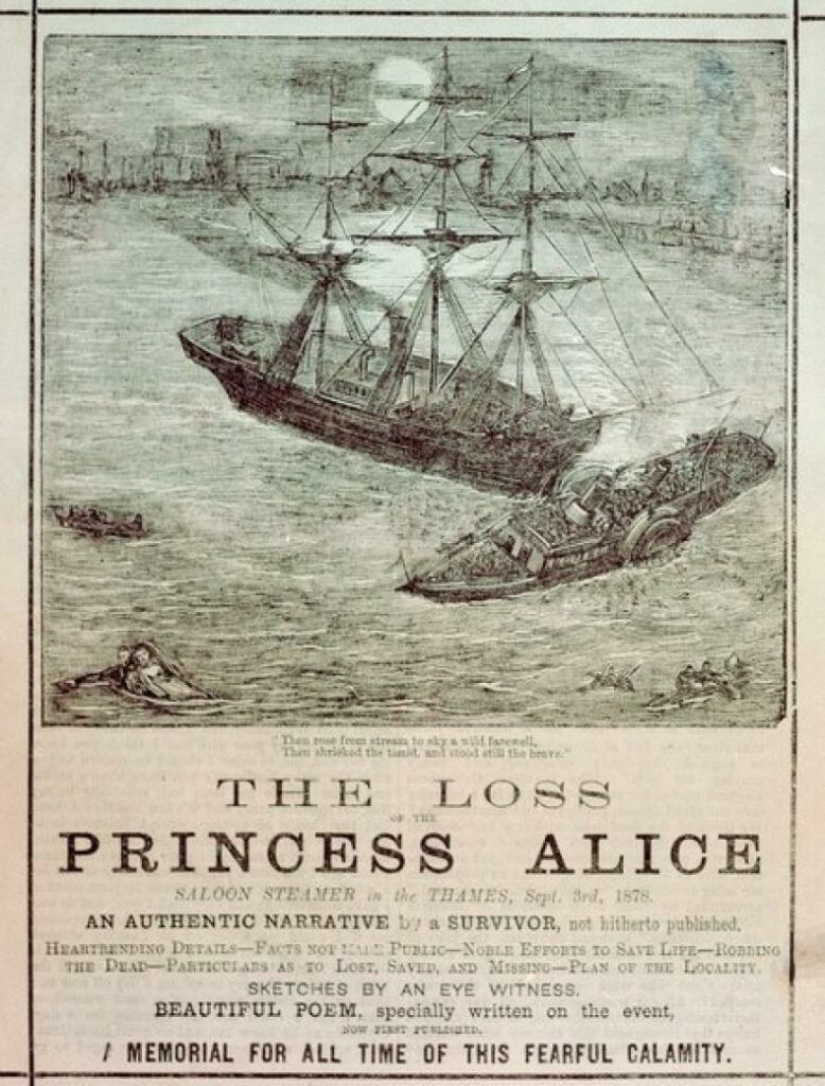
A transcript of the cook's testimony recorded his short conversation with the captain of the steamer:
At this moment, "Princess Alice" finally fell apart into two parts and immediately went to the bottom. The National Maritime Museum of Britain has a model showing the wreck of a steamship. The bow and stern of the ship rose up, and in the middle a gap formed, into which water poured. The result was a funnel, which with terrible force pulled everyone who was on deck under the water.
Merriman, like the rest of the people on deck, was dragged under the water. But worst of all were those who were in the cabins and the saloon - they did not have a single chance of salvation. Everything was complicated by the fact that there were sewer pipes nearby, dumping sewage into the Thames. The water at the crash site was incredibly dirty and there was a disgusting stench all around.
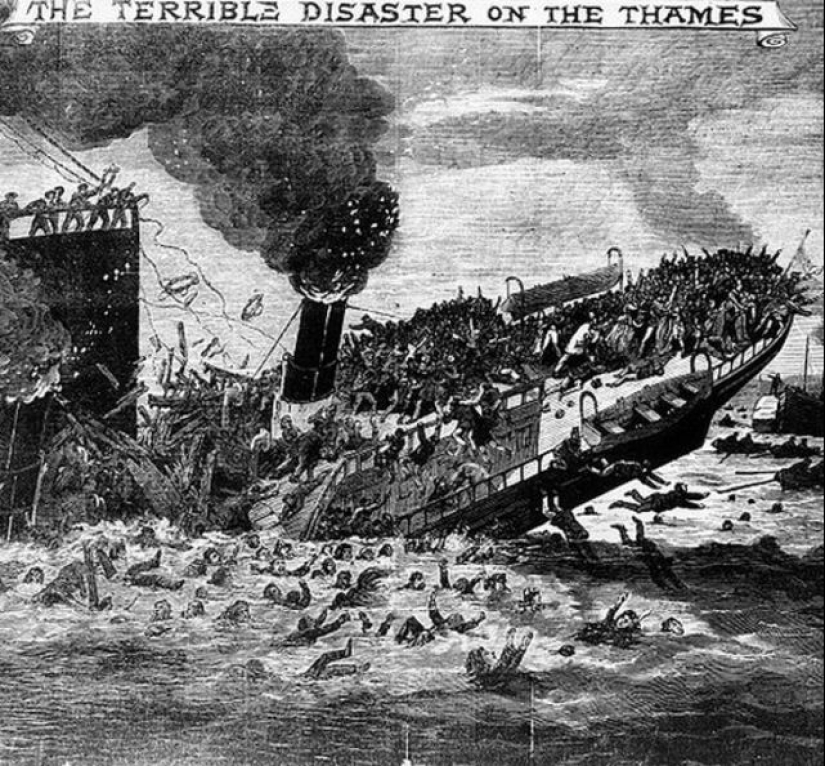
This greatly complicated the work of those who tried to help the drowning. Boatmen sailed from the shore to the crash site, and from Baywell Castle sailors threw lifebuoys, boards and even chicken cages into the water. Everything that drowning people could catch on was used. But people still drowned. Those lucky enough not to be caught in the whirlpool were dragged to the bottom in heavy Victorian dresses.
Merriman, the cook, managed to float to the surface and grab hold of a piece of wood. But another 20 people immediately followed his example, and the saving board disappeared under the water. Alfred knew how to swim, which was a rarity at that time, and the dexterous cook headed to the side of the coal carrier. There he saw a rope, which, together with him, clung to three more lucky ones. The sailors dragged them all onto the deck of the Baywell Castle.
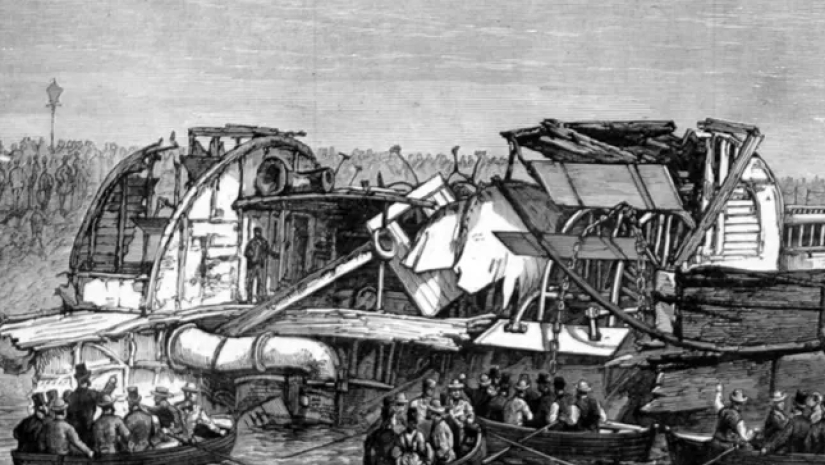
Other survivors told terrible things afterwards. According to them, everyone was at the mercy of the survival instinct and drowned others on the way to salvation. Clerk Claude Hamilton Uille, 20, told investigators:
Alfred Merriman and the other survivors were dropped off at the East Woolwich Wharf. The cook said that not everyone who was on the shore survived. An eight-year-old boy died in his arms after swallowing water. In total, 130 people got out of the water alive. But some of them soon died in hospitals due to poisoning from London drains.
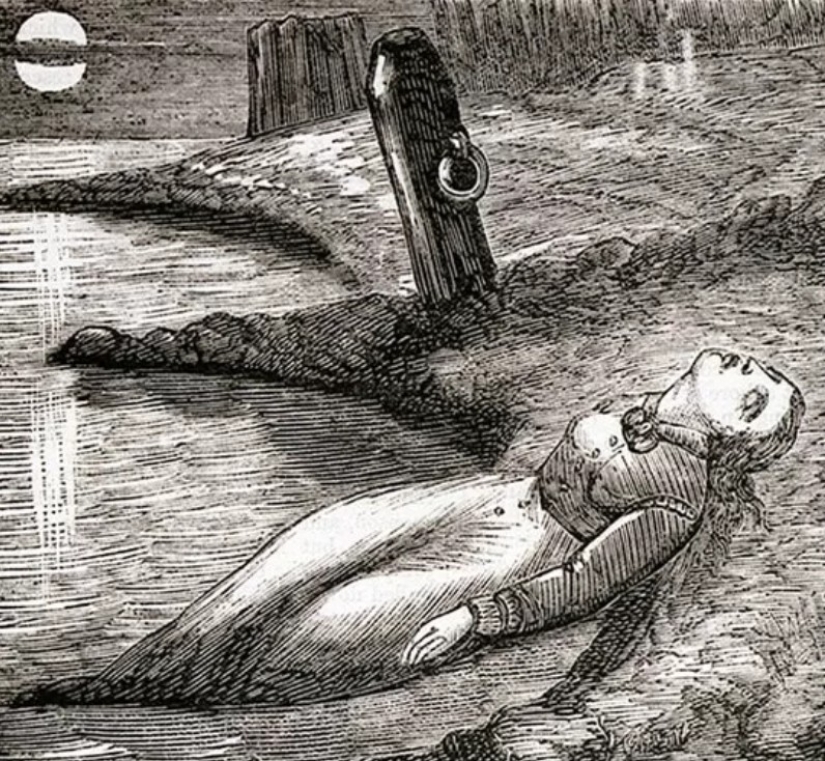
The consequences of the river shipwreck were terrible. At one point, the children were orphaned, the parents lost their children, and some families drowned in full force. The bodies of the dead were fished out along the Thames for several more days. The boats scurried along the river and the people in them pulled out the drowned with hooks. For each drowned person, the city authorities paid a reward - 5 shillings, and fights broke out among the boatmen over the corpses. The London morgue couldn't hold all the bodies. Therefore, along the Thames, temporary mortuaries were hastily built.
When the first shock passed, the Londoners began to demand an investigation. The townspeople wanted to know who was to blame for the terrible tragedy. There were a lot of rumors going around London. Toxic sewer water, the overloading of the Princess Alice, and the drunkenness of the captain of the Castle Bywell were blamed for the massive number of casualties.
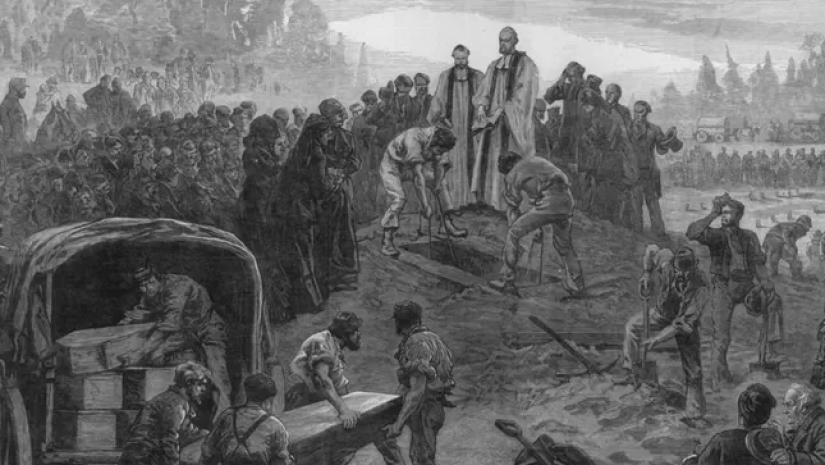
The investigation began the next day. It did not bring results. The investigators only watched how more and more bodies were removed from the water and listened to the curses of the relatives of the dead. It soon became clear that no passenger records were kept on the ship, so it was impossible to even accurately determine the number of victims.
For two months, 19 judges held one session after another, listening to the testimony of survivors and relatives of the victims. The handwritten materials of the case took up more than 5,000 pages. On November 13, 1878, angry citizens locked the judges in the conference room. They announced that they would not come out of there until they delivered a verdict.
The judges had to take stock of their work. After conferring, they announced that the "Bywell Castle" was to reverse in time, and the "Princess Alice" to stop the car. They also admitted that the collision occurred because the navigation rules in force on the river fleet are not tough enough.
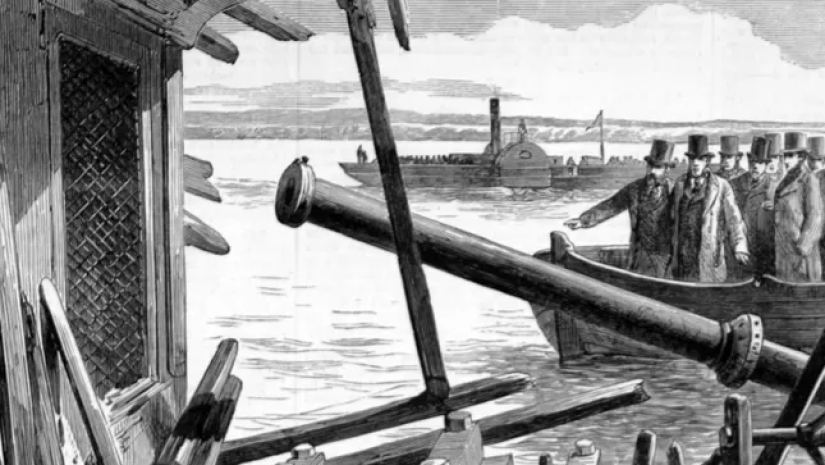
The investigation determined that the steamer "Princess Alice" was in excellent technical condition. But the crew of the vessel was understaffed and there were more passengers than expected. It was also established that there were not enough life-saving equipment on the ship.
The trial ended, but the discussion of the river disaster lasted for many years. The result was numerous innovations and strict rules. Around the world, emergency lights on river and sea vessels have become the norm. The Albert Dock was built on the Thames, which made it possible to divide passenger and cargo ships into separate streams. Funding was also continued for the modernization of the city sewer, which had begun as early as 1858.

The perpetrators of the collision have not been identified, nor have they found the reasons that led to the tragedy. Today, only an inconspicuous information plate on a deserted shore reminds of the largest shipwreck on the Thames. At the cemetery in Woolwich, you can see a memorial to the victims, created with donations from 23 thousand people.
Recent articles

It's high time to admit that this whole hipster idea has gone too far. The concept has become so popular that even restaurants have ...

There is a perception that people only use 10% of their brain potential. But the heroes of our review, apparently, found a way to ...

New Year's is a time to surprise and delight loved ones not only with gifts but also with a unique presentation of the holiday ...